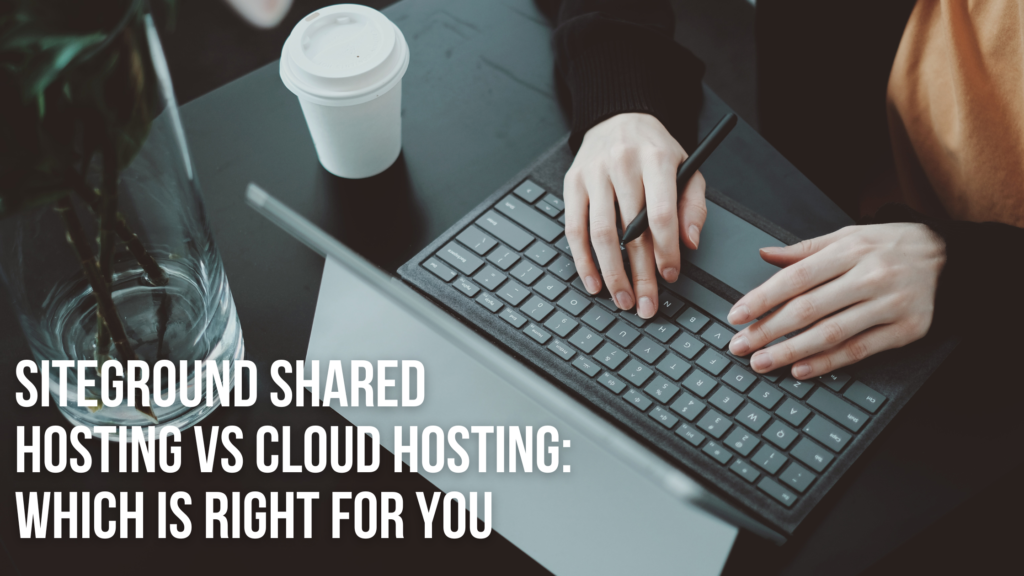Shared hosting seems to be the starting point of most websites because it is cheap and simple, and it does not involve using any technical expertise. A start-up can make use of shared hosting. However, as you increase the amount of traffic, you will find that your site will slow down, it will have downtimes, and your site will also face security issues.
According to a report by HostingTribunal, 42 per cent of those who launched websites in shared hosting moved to VPS in less than two years due to performance issues. VPS hosting allows you to gain greater speed, security choices and customisation.
What then is the kind of scenario where one should upgrade to a VPS? How does one migrate to VPS? In this article, we are going to discuss all you need to know and more, like examples of when to upgrade, by step-by-step migration process.
Table of Contents
Symptoms That You Need to Switch to VPS Hosting
1. Slow Web sites
Shared hosting splits the resources of a server to be shared by hundreds of websites. When a website surrounding your website experiences a massive surge in website traffic, your website will become slow. Google revealed that 53 per cent of those who can stop after visiting a page would wait longer than 3 seconds page to load.
2. Permanent Downtimes or wrongs
When your site collapses at the moment when it spikes your traffic due to a flash sale or a post that went viral, this is a good sign that you have to upgrade your shared hosting plan to VP, S, since it has dedicated resources, and this reduces the loss incurred by the downtime.
3. Security issues
The shared hosting is also subject to attacks. Hacking one of the sites on a shared server will give the hacker the ability to alter or perform attacks on the other sites on the shared server. VPS provides websites with an isolated environment, and this significantly minimises risks of attacks and safer for eCommerce and business-oriented websites.
4. Upgrading Special Software
Shared hosting does not allow for software installation. If your site needed special tools such as Node.js or Redis, a VPS gives developers root access for websites, making all software installation possible.
How to Choose a VPS Hosting Provider?
1. Managed vs. Unmanaged VPS
Managed VPS (Liquid Web, Cloudways) – The provider handles everything about server maintenance, server updates, and security. Managed VPS is best for the non-technical user.
Unmanaged VPS (DigitalOcean or Linode) – You are responsible for the management of everything about the server. An unmanaged VPS is great for developers who need full control.
2. Performance & Scalability
What to Look For
- SSD storage (faster than HDD)
- Guaranteed RAM and CPU (you won’t share with other users)
- Easy scaling (As looks at the longest section that is still not easy to read)
3. Customer Support & Uptime Guarantee
Your VPS host should include 24/7 support and a minimum of 99.9% uptime guarantee.
Migration from Shared to VPS Hosting Step-by-Step
Step 1: Backup your website
You can use a program like UpdraftPlus (for WordPress) or the backup feature in your cPanel for the shared hosting account to save all files, databases, and emails.
Step 2: Select a VPS plan
If you are brand new to VPS hosting, we recommend the managed VPS plans at AlternateProduct (they are affordable with easy set-up, and have strong security and expert support).
Step 3: Set Up the VPS
Install control panel (cPanel or Plesk).
Transfer files via SFTP or SSH.
Test the freshly migrated site on the new server, and when happy with testing, switch the DNS.
Step 4: Update DNS and Monitor Performance
Point your domain to point to the new VPS IP. Use UptimeRobot to monitor for downtime.
10 Best VPS Hosting Providers in 2025
DreamHost
- Features: Shared, VPS, Dedicated, Cloud, WordPress hosting; Unlimited bandwidth, Free SSL, WP Site Builder.
- Details: Beginner-friendly, SSD storage, 97-day money-back guarantee, slow support.
Pricing: Reach out to us to discuss options for hosting fees.
Hostinger
- Features: Shared, VPS, Cloud, WordPress hosting; Free domain, hPanel, Weekly backups.
- Details: Low-cost, Fast loading time, 99.9% uptime, Limited advanced features.
Pricing: Check this out for discounted costs on hosting fees.
SiteGround
- Features: Shared, Cloud, WordPress hosting; Free SSL, Daily backups, CDN.
- Details: Reliable, Optimised for WordPress, Good support, High renewal pricing.
Pricing: Reach out to us to have a discussion and build a customised option for other providers.
Bluehost
- Features: Shared, VPS, Dedicated, WordPress hosting; Free domain, Unmetered bandwidth.
- Details: Beginner-friendly, WordPress endorsed, Average support, owned by EIG.
Pricing: Check here for exclusive deals on alternative hosting services.
LiquidWeb
- Features: VPS, Dedicated, Cloud, Managed WordPress hosting; High-performance servers, 100% uptime SLA.
- Details: Premium, business-focused, Excellent support, High priced.
Pricing: Reach out to us for customised suggestions for other hosting options.
MochaHost
- Features: Shared, VPS, Dedicated; Free SSL, Unlimited space, Lifetime discount.
- Details: Cheap, Mixed reviews, Good for small sites.
Costs: Check here for coupons for alternative hosting.
Hostwinds
- Features: Shared, VPS, dedicated, cloud hosting; unlimited bandwidth, free website migrations.
- Details: Flexible plans, solid support, lesser-known, inconsistent speed.
Pricing: Contact for personalised hosting options.
A2 Hosting
- Features: Shared, VPS, dedicated, WordPress hosting; turbo servers, free SSL, anytime refund.
- Details: Super-fast performance, developer-friendly, consistent, support level varies.
Pricing: See here for discounts on alternative hosting.
InMotion Hosting
- Features: Shared, VPS, dedicated, WordPress hosting; free domain, SSD storage, 90-day guarantee.
- Details: Reliable, geared toward business, good support, complex layout.
Pricing: Contact us for personalised recommendations on alternative providers.
GoDaddy
- Features: Shared, VPS, dedicated, WordPress hosting; free domain, easy to use, marketing tools included.
- Details: Newbie-friendly, upsells, average performance, large number of users.
Pricing: Check out this link for exclusive deals on alternative hosting solutions.
Key Points:
- Best Budget Buy: Hostinger ($5.99/month)
- Best WordPress Hosting: DreamHost & SiteGround
- Best Performance: A2 Hosting (Turbo servers)
- Best Support: Liquid Web (“heroic” support 24/7)
- Best Value for Scalability: Hostwinds (instant resources upgrade)
Pro Tip: If you want a managed VPS with no headaches, check out AlternateProduct’s curated offerings that fit your budget and needs.
Conclusion
Moving from shared to VPS hosting is normal for growing websites. If your site has slow speeds, downtime, or security issues, moving to VPS is a better option for better performance, scalability, and resources.
If you want to eliminate the hassle, you can get managed VPS hosting from AlternateProduct with host-level support – a great option if you are not yet comfortable with managing your server.
FAQs
What are the indicators that I should upgrade my shared hosting to VPS?
When you are suffering from slow load times of your website, frequent downtimes, particularly when you have high traffic and are considering hosting your custom software, then it is time to get VPS hosting.
Will my site performance automatically be faster when I move to VPS?
Yes, most of the time. Under VPS hosting, the resources are dedicated, such as the RAM and the CPU. This is usually synonymous with fast load times and performance, particularly when there is a high amount of traffic.
Managed vs unmanaged VPS hosting: What is the difference between managed and unmanaged VPS hosting?
Managed VPS usually indicates that the server provider takes care of maintenance, upgrading and security. It is really good when you do not have a technical background. Unmanaged means that you can have the freedom to do anything you want to the server, i.e. manage the server, but you must possess technical skills in managing servers.
Is VPS hosting secure for e-commerce?
Yes. VPS is more secure than shared hosting as they have isolated server environments. VPS is more secure than shared hosting, regardless. eCommerce sites often have specific concerns for customer data, so VPS is a better choice for this environment.
How difficult will it be to make the transition from shared hosting to VPS Hosting?
Not very difficult as long as it is done correctly. Most VPS hosting providers will offer migration assistance, and typically provide tools to assist in this process (e.g., backup tools, file transfer tools and DNS updates). If you go with a managed VPS service, it will be easier than if you go with an unmanaged VPS service.
Where can I find cheap beginner-friendly VPS plans?
You can also find beginner-friendly and affordable VPS hosting done by curated comparisons at alternateproduct.com – perfect for growing websites in India and the world.







